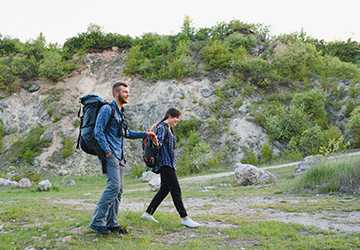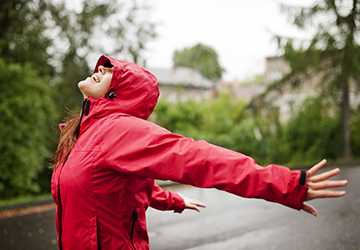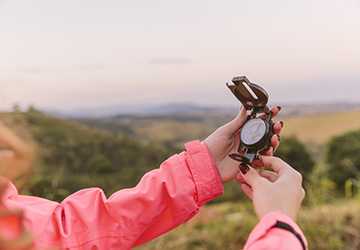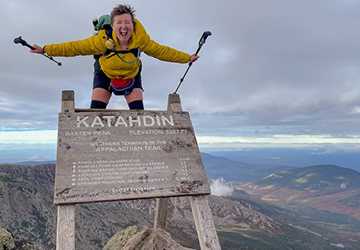Top 10 Tips for Hiking Safely in Remote Areas
Embarking on a hiking journey in remote areas is like stepping into a pristine canvas of nature's artwork. The untouched beauty, the whispers of the wind through towering trees, and the serenity of vast landscapes draw adventurers seeking an escape from the hustle and bustle of daily life.

However, amidst the allure of the unknown, it's paramount to approach such expeditions with a blend of excitement and caution. In this guide, we'll delve into straightforward and practical tips to ensure your hike in remote areas is not only exhilarating but, above all, safe.
1. Know Your Route Like the Back of Your Hand
Before you set foot on the trail, take the time to research and understand your chosen route thoroughly. Don't rely on GPS; get a good old-fashioned map and compass—Mark critical points like water sources, emergency exits, and potential hazards. Familiarize yourself with the terrain and elevation changes to accurately gauge the hike's difficulty.
Knowing your route inside out helps prevent getting lost and ensures you're prepared for whatever challenges lie ahead.
2. Pack Smart, Pack Light
When it comes to packing for a remote hike, less is more. It's easy to fall into the trap of overpacking but remember; you'll be carrying everything on your back. Stick to the essentials – water, high-energy snacks, a first aid kit, a multi-tool, weather-appropriate clothing, and a lightweight emergency shelter. If your backpack is bulging at the seams, it's time to reevaluate.
Focus on versatile, lightweight gear that serves multiple purposes. The goal is to stay nimble and avoid unnecessary strain.
3. Stay Hydrated, Stay Fueled
Access to water might be limited in remote areas, so it's crucial to stay hydrated. Carry a sufficient amount of water, and if you need clarification on the water sources on your route, consider a water purification system. Dehydration can sneak up on you, leading to fatigue and poor decision-making. Monitor your water intake, especially in hot and dry conditions.
Alongside hydration, maintain your energy levels by snacking regularly. Portable, nutrient-dense snacks like trail mix, energy bars, and dried fruits can provide the quick boost you need to keep going.
4. Weatherproof Yourself
Nature has a mind, and weather conditions can change rapidly in remote areas. Be prepared for whatever Mother Nature throws by checking the forecast before your hike. Dress in layers to regulate your body temperature; always carry a waterproof jacket. Even if the forecast predicts clear skies, it's wise to pack for unexpected rain or a drop in temperature.

Protect yourself from the sun's rays with a hat, sunglasses, and sunscreen. Weatherproofing your gear is equally important – ensure your backpack and other essentials are water-resistant.
5. Share Your Plans and Stay Connected
Before embarking on a remote hike, let someone know your plans. Share your intended route, expected return time, and any emergency contacts. Having someone aware of your whereabouts can be a lifesaver if something happens. Carry a fully charged cell phone with emergency contacts programmed in, and consider investing in a portable charger.
While it's refreshing to disconnect from the digital world during a hike, having the means to communicate in an emergency is a non-negotiable safety measure.
6. Respect Wildlife from a Distance
Nature is full of wonders, and encountering Wildlife can be an awe-inspiring part of your hike. However, it's crucial to respect their space. Keep a safe distance, observe quietly, and never attempt to feed or approach wild animals; this not only safeguards your well-being but also ensures the natural behaviour of the Wildlife is undisturbed.
Remember, you are a guest in their home, so treat it respectfully.
7. Learn Basic First Aid Skills
Help may be limited in remote areas, making basic first-aid skills invaluable. Take an introductory first aid course to equip yourself with the knowledge to handle common injuries like cuts, sprains, and insect bites. Carry a well-stocked first aid kit and know how to use its contents. Being prepared to address minor injuries on the spot can prevent them from escalating into more significant issues.
8. Be Mindful of Leave No Trace Principles
Preserve the beauty of the wilderness by following the Leave No Trace principles. Pack out all your trash, stay on designated trails, and avoid disturbing plants and Wildlife. Minimize your environmental impact by practising responsible camping and disposing of waste properly.
By leaving the natural surroundings as you found them, you contribute to conserving these remote areas for future generations.
9. Time Your Hike Wisely
Plan your hike with consideration for the time of day and the season. Starting early in the morning allows you to make the most of daylight and can help you avoid afternoon heat or sudden weather changes. Be realistic about your hiking pace and plan to reach your destination well before sunset.

If your hike takes longer than expected, having a headlamp or flashlight can be a lifesaver, ensuring you're not navigating in the dark.
10. Trust Your Instincts
Your intuition is a powerful tool when hiking in remote areas. Don't hesitate to reassess your plans if something feels off or weather conditions take an unexpected turn. Trust your instincts and be willing to adapt. It's better to modify your route or turn back if necessary than to push on into unsafe territory.
Listen to your body, too – if you're feeling exhausted or unwell, take a break and reevaluate whether continuing is the right choice.
Conclusion
In the quiet embrace of nature, where every rustle of leaves and chirp of birds becomes a companion on your journey, safety is the silent guardian of your adventure.
As you conclude your hike through remote areas, remember that each step taken with caution, each piece of gear packed thoughtfully, and every sip of water savoured is a testament to your commitment to the thrill of exploration and the reverence for the wild.
May these tips accompany you on future trails, allowing you to relish the beauty of nature, unburdened by worry and with a heart full of memories. Safe travels and happy hiking!


